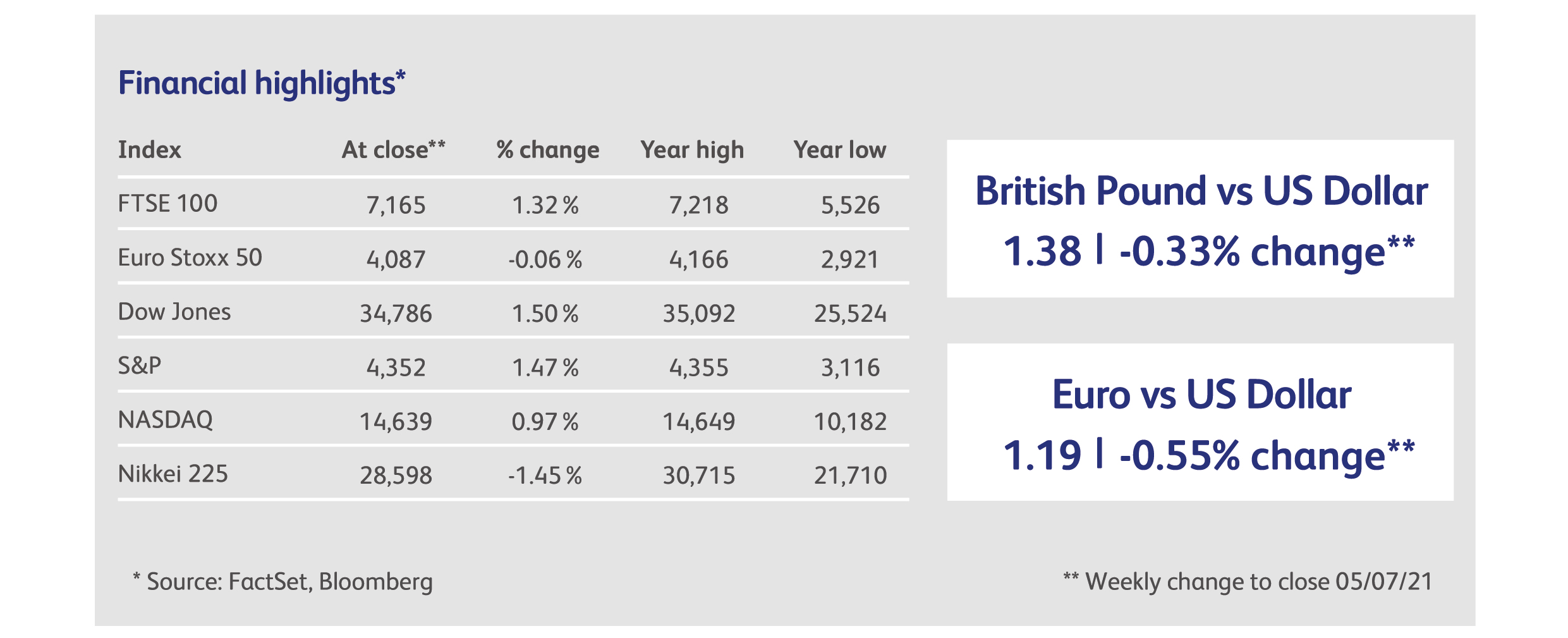
6 July 2021
Once upon a time, in the pre-pandemic world, growth in the western world could be predicted from spending patterns in China. So great was the Chinese capacity to build, and so slow the rate of growth in developed world economies, that China came to be the main influence on the business cycle. Thus it was that Chinese government stimulus was able to bail the western world out of the slumps caused by the Credit Crunch and the European Debt Crisis and, by the end of the last decade, the Chinese economy had added about another third to global GDP. However, this stimulus was financed by a massive build-up in local government debt, borrowed from state-owned banks, and the burden of interest payments and the threat of defaults now threaten the country's future growth. The government in Beijing is now reining in the local authorities: China's covid stimulus was equivalent to only 3% of GDP (compared with 10% of GDP in the US) and, by the end of last year, the central government had already clamped down on debt issuance by local government. Simply put, the Chinese government has engineered a slowdown, and this can now be clearly seen in the slowing economic data (see Economics: highlights).
This would normally have subdued capital markets in the developed world but, fortunately for investors, pandemic stimulus has replaced Chinese government stimulus as the driver of the business cycle. To free themselves from the Chinese investment cycle, though, developed world governments have had to adopt Chinese-style, lavish fiscal policy. Can they avoid the same build-up of risk? A lot is riding on the current stimulus to create enough additional growth to pay for itself; failing that, on the ability of central banks to control interest costs.
China was also in the news last week for its continuing crackdown on technology companies. This moved to a whole new level of intensity with the announcement of probes into three Chinese companies that had listed on US stock exchanges within the last few weeks. One of them, Didi Global (the Chinese version of on-line taxi company Uber), had listed on the New York Stock Exchange a mere two days previously. All three companies were ordered to halt new user registrations, and app stores were told to remove Didi's service from their platforms. Didi's share price fell 7% on the day the news emerged.
That the authorities are targeting Chinese companies that have just raised money in the US should be seen in the context of the broader trade war between China and the developed world. By doing this Beijing is demonstrating its dislike of overseas listings, discouraging Chinese technology firms from having foreign investors and, moreover, it is undermining the credibility of the New York Stock Exchange as a venue for listings. Capital markets, it seems, can be weapons.
International investors and global corporates face a dilemma: Chinese markets are attractive because the economic growth expectations are huge. But to participate you will have to bow-down to the powers in Beijing. With public opinion in the West turning against China, and vice versa, that tightrope is increasingly difficult to walk.

New York-based Apollo Global Management Inc. has announced they are considering a counterbid for Morrisons. If Apollo do make an offer it would set up a potential bidding war with SoftBank-backed Fortress Investment Group LLC and US private-equity firm Clayton, Dubilier & Rice. Apollo's announcement comes a few days after a group of investors led by Fortress agreed to acquire Morrisons in a deal worth more than $8.7 billion. Morrisons, the UK's fourth largest grocery chain, had already rejected a £5.5 billion ($7.6 billion) offer from Clayton, Dubilier & Rice last month.
The hypercar business Bugatti is to be sold by Volkswagen AG to create a new company jointly owned by the Croatian electric car startup Rimac Automobili and WW's sports car unit Porsche AG. WW bought Bugatti in 1998, after the company had fallen on hard times, and its sale comes as the auto industry's transformative move to electric vehicles is changing the elite world of super high-performance sports cars. In the deal Rimac will become the majority shareholder with a stake of 55% in the joint venture, which has been dubbed Bugatti-Rimac, while Porsche will hold the rest, and will also retain its 24% stake that it holds in Rimac directly. Mr Rimac, the 33 year-old Croatian engineer, will become the CEO of the joint venture.
AT&T has announce it is to move it's 5G mobile network to Microsoft's Azure for Operators cloud, and sell its Network Cloud to Microsoft. The major strategic deal will enable AT&T to increase productivity and cost efficiency, while Microsoft will gain access to AT&T's intellectual property and technical expertise, which will help them to grow their telecom flagship offering, Azure for Operators. Financial terms of the deal were not disclosed.
Highlights
Calendar
This publication is intended to be Walker Crips Investment Management’s own commentary on markets. It is not investment research and should not be construed as an offer or solicitation to buy, sell or trade in any of the investments, sectors or asset classes mentioned. The value of any investment and the income arising from it is not guaranteed and can fall as well as rise, so that you may not get back the amount you originally invested. Past performance is not a reliable indicator of future results. Movements in exchange rates can have an adverse effect on the value, price or income of any non-sterling denominated investment. Nothing in this document constitutes advice to undertake a transaction, and if you require professional advice you should contact your financial adviser or your usual contact at Walker Crips. Walker Crips Investment Management Limited is authorised and regulated by the Financial Conduct Authority and is a member of the London Stock Exchange. Registered office: Old Change House, 128 Queen Victoria Street, London, EC4V 4BJ. Registered in England number 4774117.
Important Note
No news or research content is a recommendation to deal. It is important to remember that the value of investments and the income from them can go down as well as up, so you could get back less than you invest. If you have any doubts about the suitability of any investment for your circumstances, you should contact your financial advisor.